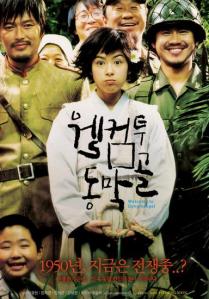The informal is the basic. Knowing it will help you make all the other forms. However, do note that you can only use it when you’re talking to a close friend or somebody significantly younger than you!
To make the informal, first find the vowel closest to the -다 in the dictionary form. For example, if we look up the word laugh in the dictionary (or our handy cell phones dictionaries) we would find 웃다, where ㅜ is the vowel closest to -다. Second, drop the -다. Now you have the base, in this case 웃-. Now to make the informal, add a new vowel ending. The vowel you use will depend on what vowel is closest to the end of the verb base. Use this chart as a reference to find the correct ending to add at this point to make the informal. In our example, since the verb ends in a consonant and the closest vowel to the end of the verb base is ㅜ, we will add 어 and end up with the informal, 웃어. Try putting some of the verbs you know into the informal form. If you have questions, just leave them in the comments section and I or somebody else will try to answer them. Take a look at the chart for a simple(ish) glance at how to do it. Continue reading →
Posted in language
Tagged conjugate, conjugation, expressions, 동사, 배우, 배워, 한국, 한국어, 온라인, Korea, Korean, language, learn, learning, online, phrases, sayings, verbs, words
 Easily one of the best, most unique movies made about the Korean war for two reasons. First it shares a Korean perspective of the absurdity of this civil war with neither side certain who invaded whom or why. As one elder in the far-removed Shangri-La-type village of Dongmakgol puts it when he hears that a war is afoot, “Who’s invaded this time? The Chinese? The Japanese?” and the answer of course is “er… it’s not that simple.” Secondly, it’s not your typical war movie. This movie manages to be heartwarming, humorous and tragic, defying–as many Korean movies do–to be placed strictly within one genre. Continue reading
Easily one of the best, most unique movies made about the Korean war for two reasons. First it shares a Korean perspective of the absurdity of this civil war with neither side certain who invaded whom or why. As one elder in the far-removed Shangri-La-type village of Dongmakgol puts it when he hears that a war is afoot, “Who’s invaded this time? The Chinese? The Japanese?” and the answer of course is “er… it’s not that simple.” Secondly, it’s not your typical war movie. This movie manages to be heartwarming, humorous and tragic, defying–as many Korean movies do–to be placed strictly within one genre. Continue reading 